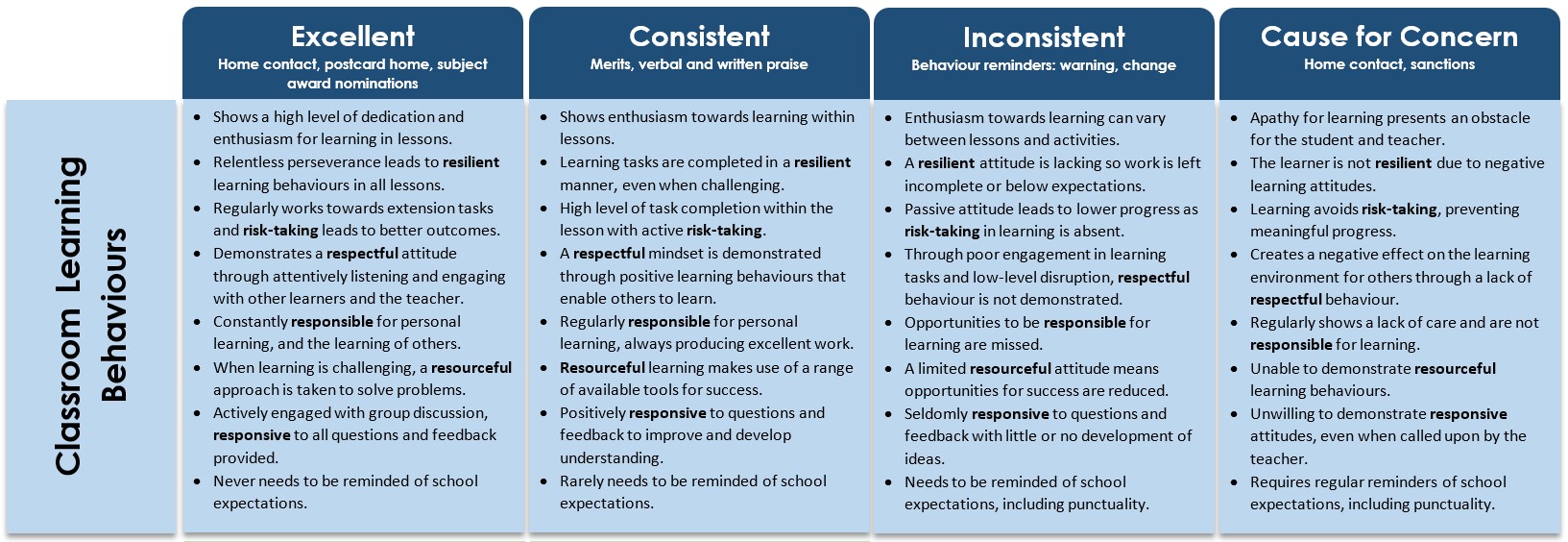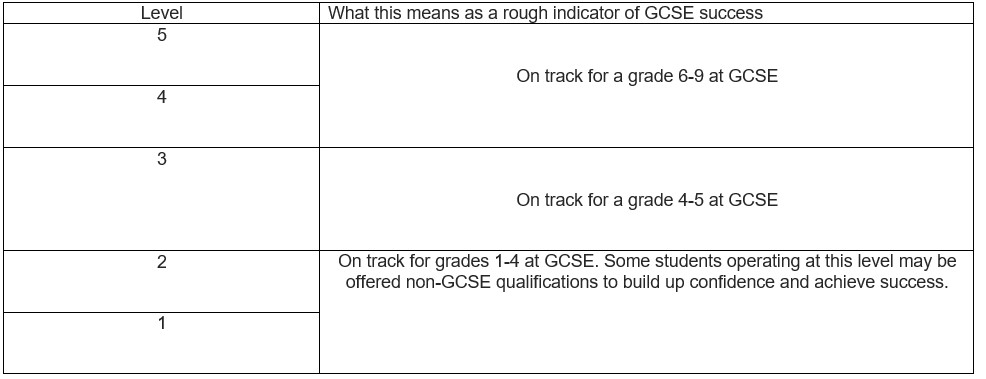Key Stage 3 Assessment Guide
Introduction
We believe that the most important role of assessment at Key Stage 3 (KS3) is to support learning, build confidence and reward hard work and effort. It is also important to inform parents of how students are doing, both in attitude, behaviour and to provide a broad indication on progress towards GCSE success levels.
The most important assessment to support learning is for students to track how well they are doing against regular assessments along their journey through KS3. Using our Go4Schools system we are able to provide detailed and regular feedback on class assessment within subjects. This detail can be used by parents to understand precisely what progress is being made within subjects; however, we understand that many parents will focus on effort and attitude as these are the key things that a student can control.
The purpose of this document is to set out how the assessment systems work to meet these aims.
Three Effort grades for every subject
In every subject we will be awarding three important grades which we believe are the key in accelerating progress in KS3:
- Classroom Learning Behaviours
- Quality of Classwork
- Independent Learning
These three key grades are reported on the A to D scale detailed below:
Classroom Learning Behaviours
Quality of classwork
Independent Learning
Assessment of Attainment
The following subjects will receive one grade based on academic attainment twice per year. These will be issued in February and June:
English History
Mathematics Modern foreign languages
Science Music
Art Philosophy and Ethics
Geography Physical Education
The following subjects will be offered one grade per year at the end of their rotation in November, February, May and July:
Computing (Year 8/9)
Design and Technology
Food Technology
Performing Arts (Year 7)
Personal Development
Attainment grades at King Edward are based on a system of 1-5 which can be used to give a broad indication of GCSE success. We do not set precise flight paths for students from KS2 through to expected GCSE outcomes because outcomes at age 11 should not determine expectations at age 16 for individual students.
In English, Science and Mathematics we will set a baseline target to measure progress against KS2 achievement. Students at age expected levels at primary school will be given a L3 as their baseline.
Regular ongoing assessment
To assess topics departments will use a combination of percentages, scores and the five-level system to provide regular feedback on attainment and progress throughout the year. In many ways this is the most useful and important assessment data as this is showing the detail of what students can and can’t do. This can be used by students and parents to plan independent learning activities outside of formal classwork and homework meaning that no child has a limit placed on their potential.
Students should focus primarily on the detail of what they have not securely learned throughout the year and the three different efforts grades handed out. These ongoing assessments are the key for students to understand what they have learned and what topics they need to work on to improve.
Reporting
There will be three reporting points over the course of the year.
Rotation Subjects
In KS3, some subjects are taught in a carrousel on rotations that last for 9-10 weeks each.
Rotation subjects will report on Attainment as well as Classroom Learning Behaviours, Quality of Classwork and Independent Learning at the end of each rotation
Rotation 1: November
Rotation 2: February
Rotation 3: May
Rotation 4: July

Summary
Assessment data will be ‘live’ on Go4Schools throughout the academic year and reports will be produced three times a year for the three areas of assessment, as detailed below.








